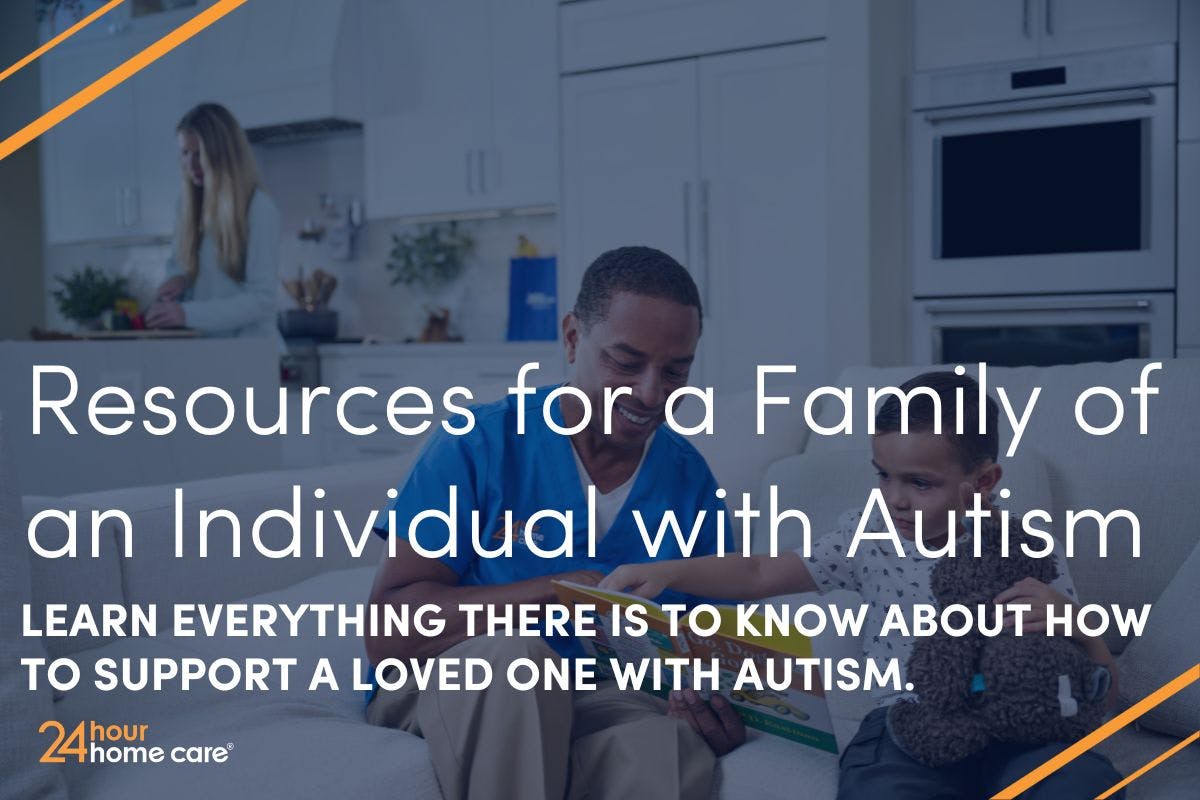Resources for a Family of an Individual with Autism
Things may look different than before, but that does not mean that you cannot create a wonderful, fulfilling, and happy life for your loved one with Autism.

When a family member is diagnosed with Autism, it's common to feel overwhelmed and wary of the challenges ahead.
It’s important to know these feelings are completely normal and valid, receiving a diagnosis is a time of uncertainty and change! However, you do not have to feel lost; there are many free resources for you and your family.
As a family member of a loved one with Autism, you may be concerned that they may struggle with a ‘normal’ life. It is important to remember that the term ‘normal’ is both outdated and irrelevant. Every person has their version of normal.
Things may look different than before, but that does not mean that you cannot create a wonderful, fulfilling, and happy life for your loved one with Autism.
Family Therapy for Loved Ones with Autism
We can all agree that therapy is recommended for most people. However, therapy and early intervention are key to managing the challenges that come with an Autism diagnosis. The type of therapy your family and loved one receives depends on the type of Autism they are diagnosed with.
For example, if your loved one struggles from outbursts of inappropriate behavior during social interactions, they may start off with social skills and behavior therapy. This type of therapy will focus on your loved one’s needs and how to improve their behavior to have a successful social life.
Other kinds of therapies may focus on self-injury prevention, depression in Autism, sensory based therapies or even animal-based therapy using emotional support animals. When it comes to therapy, the most important aspect is picking a professional therapist. Ask your loved one’s doctor for recommendations.
Therapy can be invasive and difficult at times. It is important to think of long-term goals and success when starting therapy and going through any rough patches. Starting therapy at a younger age can help manage behaviors and set a child up for success later in life.
Resources for Adults with Autism
Autism can look different at every age. While a lot of internet resources are aimed towards parents of young children, there are a bevy of resources for adults.
As a family member of an individual with Autism, it is important to encourage your loved one to seek out the resources that are available to them. It is also important to know that an Autism diagnosis does not stop anyone from living a happy and meaningful life.
When looking for resources for adults with Autism, we recommend looking into Autism advocacy programs. Advocacy programs help to support adults with Autism by advocating for better treatment in schools, the workplace, and other social spaces.
Some standout advocacy programs are:
- The SUNY Center for Autism Advocacy: Research, Education, and Supports
- Autism Society Los Angeles
- Autistic Self Advocacy Networks
- Organization for Autism Research
These organizations, and others like them, help adults with Autism advocate for themselves, navigate the legal system, and assist with applying for and getting into medical programs. Additionally, research organizations are constantly working to learn more about Autism and how to improve the lives of individuals with Autism.
Another standout program for adults with Autism is The Lifestyle Redesign® program from the University of Southern California. This program provides occupational therapy for adults, which includes learning how to have a healthy daily routine and how to create a sustainable lifestyle.
We also recommend looking into programs that are specific to your community. Community based programs may range from interview practice to learning how to pay bills and balance a bank account. Just as your loved one did in their earlier years; their therapies and programs will be highly dependent on the needs that they have. Programs can range from highly intensive everyday programs to less intense programs that meet once a week.
Support Groups for the Family of an Individual with Autism
While you’re researching resources for your loved one, don’t forget to help yourself. One of the most important resources out there for a family of an individual with Autism is a support group.
This will allow you to communicate with others who may be feeling the same way as you, giving you an outlet to channel your emotions. Support groups may vary based on the specific diagnoses or a general support group for families with loved ones that have a disability or are special needs. You can connect with families that have similar experiences by speaking with your doctor or an education professional who may be able to connect you with support groups. Support groups may not be for everyone, but if you need community and social support, we highly encourage them.
These resources are meant to help you and your family find support and care while navigating the world with a loved one with Autism. We understand these resources may not be for everyone, but specific resources and support groups will allow you to relate to people that are in a similar situation as you and your family. The health, wellness and happiness of your family is and should be your priority, so we encourage you to find the time to seek out the resources that are right for you.
